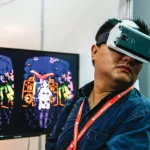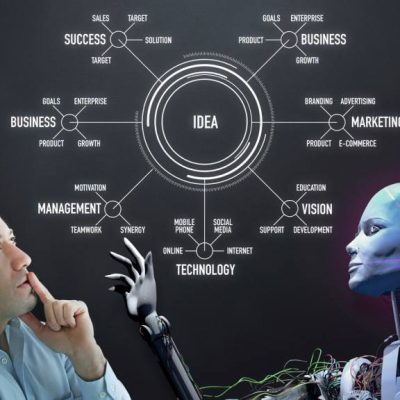As artificial intelligence (AI) continues to evolve and integrate into various industries, the field of coding is experiencing significant transformation. The potential of AI to automate routine tasks and enhance productivity has sparked both excitement and concern among software developers and coding professionals. This article explores the future of coding jobs with AI advancements, examining how AI is changing the coding landscape, the new opportunities it presents, the skills required for future coders, and the potential challenges and ethical considerations.
The rapid advancement of AI technologies has brought about a paradigm shift in numerous fields, including coding and software development. Traditionally, coding has been a labor-intensive process requiring a deep understanding of programming languages and algorithms. However, AI is now capable of generating code, debugging programs, and even optimizing software performance. While some fear that AI will replace human coders, others believe it will augment their capabilities and open new avenues for creativity and innovation. In this article, we delve into the impact of AI on coding jobs and what the future holds for coding professionals.
AI-Driven Code Generation and Automation
AI-powered tools are revolutionizing the way code is written and maintained, leading to greater efficiency and accuracy in software development.
Automated Code Writing
One of the most significant advancements in AI for coding is the development of automated code-writing tools. AI algorithms, such as OpenAI’s Codex, can understand natural language descriptions of desired functionality and generate corresponding code in various programming languages. This capability allows developers to focus on higher-level problem-solving and design, rather than getting bogged down by repetitive coding tasks. While these tools are not yet perfect, they represent a significant leap forward in reducing the time and effort required to write code.
Enhanced Debugging and Testing
AI is also improving the debugging and testing processes, which are crucial for ensuring software quality. Machine learning models can analyze code to identify potential bugs, suggest fixes, and predict areas that might cause issues. Automated testing frameworks powered by AI can generate and execute test cases more efficiently than manual testing, ensuring thorough coverage and faster release cycles. These advancements not only enhance productivity but also help maintain high standards of software reliability and performance.
New Opportunities for Coders in an AI-Driven World
As AI takes over routine coding tasks, new opportunities are emerging for coders to leverage their skills in more strategic and creative ways.
Focus on Complex Problem-Solving
With AI handling many of the repetitive and mundane aspects of coding, developers can dedicate more time to solving complex problems and developing innovative solutions. This shift allows coders to engage in higher-level thinking, such as designing robust architectures, optimizing algorithms, and creating user-centric applications. The ability to tackle intricate challenges and drive innovation will be a key differentiator for coders in an AI-enhanced landscape.

Specialization in AI and Machine Learning
The rise of AI is creating a demand for specialized knowledge in machine learning and AI development. Coders who acquire expertise in these areas will be well-positioned to work on cutting-edge projects involving AI model development, data analysis, and algorithm optimization. By understanding the principles of AI and its applications, developers can contribute to building intelligent systems that enhance various aspects of technology and business.
Essential Skills for Future Coders
To thrive in a world where AI is integral to coding, developers need to cultivate a diverse skill set that combines technical proficiency with adaptability and continuous learning.
Proficiency in AI and Machine Learning Concepts
As AI becomes more prevalent, a solid understanding of AI and machine learning concepts will be essential for future coders. This includes knowledge of algorithms, data structures, neural networks, and natural language processing. Familiarity with popular AI frameworks and libraries, such as TensorFlow and PyTorch, will enable developers to effectively integrate AI capabilities into their projects.
Soft Skills and Collaboration
In addition to technical skills, soft skills such as communication, collaboration, and problem-solving will play a crucial role in the future of coding jobs. As AI tools take on more routine tasks, human developers will need to work closely with cross-functional teams, communicate complex ideas effectively, and collaborate on innovative solutions. The ability to bridge the gap between technical and non-technical stakeholders will be highly valued in an AI-driven work environment.
Challenges and Ethical Considerations
While AI brings numerous benefits to the coding profession, it also raises important challenges and ethical considerations that need to be addressed.
Job Displacement and Workforce Adaptation
One of the primary concerns surrounding AI in coding is the potential for job displacement. As AI takes over routine coding tasks, some fear that there will be fewer opportunities for entry-level developers. However, this shift also presents an opportunity for workforce adaptation and upskilling. By focusing on continuous learning and acquiring new skills, developers can transition to more strategic and creative roles within the industry.
Ethical Use of AI in Coding
The ethical implications of AI in coding cannot be overlooked. As AI systems become more capable, ensuring their ethical use and preventing biases in AI-generated code is critical. Developers must be mindful of the potential for AI to perpetuate existing biases and take proactive steps to mitigate these risks. This includes adopting transparent development practices, conducting thorough testing for fairness, and establishing ethical guidelines for AI use in software development.
Conclusion
The future of coding jobs with AI advancements is a landscape of both challenges and opportunities. While AI has the potential to automate routine tasks and enhance productivity, it also opens new avenues for creativity, innovation, and specialization. To thrive in this evolving environment, coders must embrace continuous learning, develop expertise in AI and machine learning, and cultivate essential soft skills. By addressing the ethical considerations and adapting to the changing demands of the industry, developers can harness the power of AI to shape a future where human ingenuity and artificial intelligence work hand in hand.






